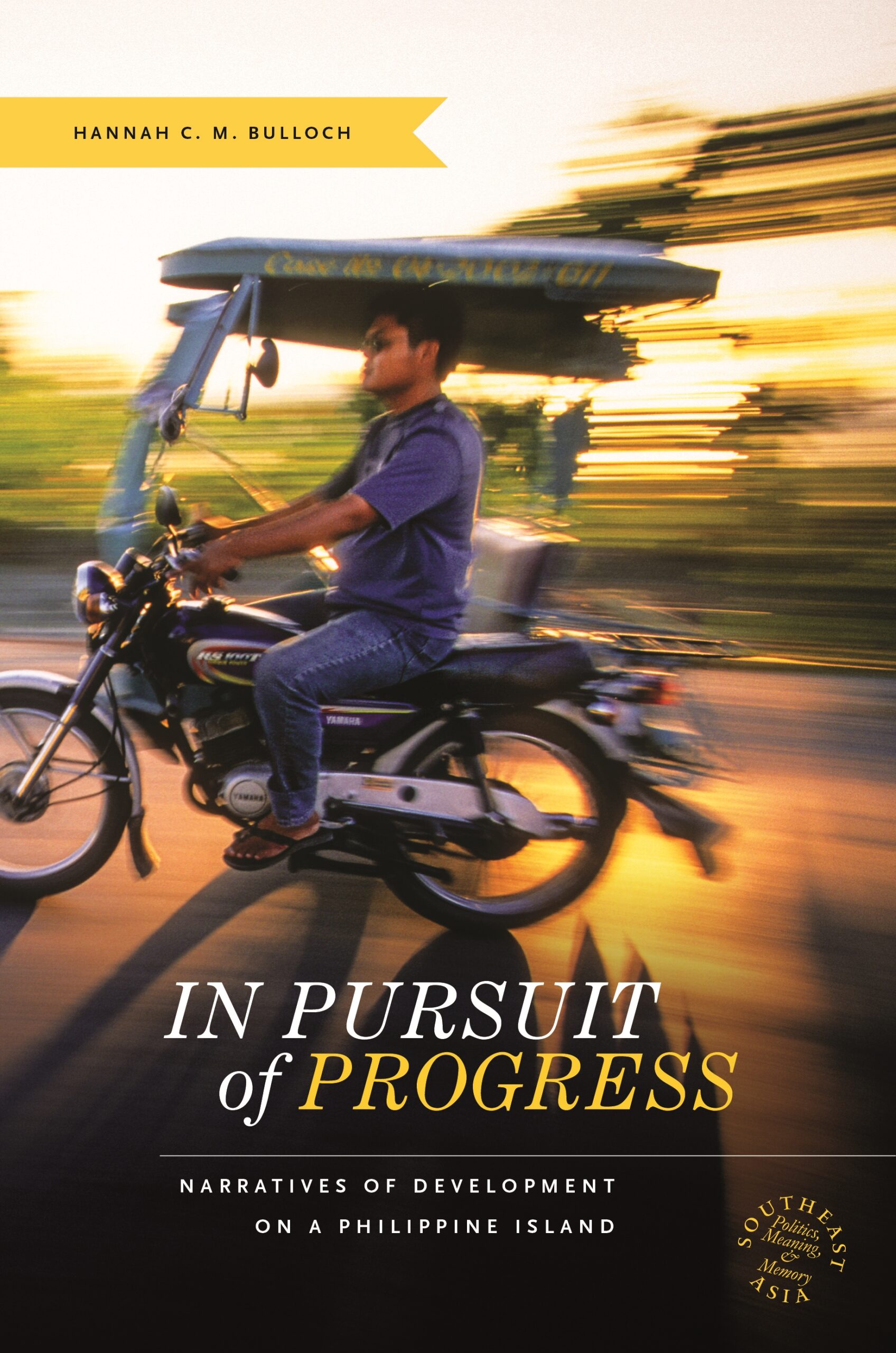In Pursuit of Progress: Narratives of Development on a Philippine Island
- About the Book
-
How are meta-narratives of development entangled in people’s identities and life trajectories? How do they inhabit people’s histories, their understandings of their place in the world, and their dreams for the future? The idea of development has been deconstructed and scrutinized as a “Western” metaphor ordering global difference and as a banner under which diverse schemes for societal improvement find legitimacy and common purpose. But how is development assimilated into the worldviews of development’s subjects? How does it reshape identities and in what ways is it reshaped in the process?
Drawing on a decade of ethnographic research on the Philippine island of Siquijor, In Pursuit of Progress explores myths, meanings, and practices of development and its counterparts, progress and modernization. It does so not only by considering development as planned, community-wide interventions aimed at society-wide improvements in living standards, but by recognizing that, as a cognitive tool for organizing relationships between people, development is personal. For Siquijodnon, development, or kalamboan, is also a process of self-transformation concerning changes in knowledge, body, roles, and cultural orientation. Emblems as diverse as skin color, Christianity, infant formula, and infrastructure make statements about development on Siquijor. Kalamboan is bound up with social mobility, consumption, and status, but so too is it imbued with ideals of the “simple life,” a life of austerity and attention to social relationships, and with other assumptions about how people should live.
Author Hannah Bulloch analyzes development not only as a prescription for material aspiration but also for moral endeavor. In Pursuit of Progress, offers rich, ethnographic insights into contemporary Visayan culture, engaging with questions of enduring significance in Philippines studies, including livelihood change, “colonial mentality,” everyday politics, and moral economy. It will contribute to debates in anthropology, sociology, and development studies regarding the ways in which discourses of development act upon local and global power relations.
- About the Author(s)
-
Hannah C. M. Bulloch, Author
Hannah C. M. Bulloch is a research fellow in anthropology at The Australian National University.David P. Chandler, Series Editor
Rita Smith Kipp, Series Editor
- Reviews and Endorsements
-
- In Pursuit of Progress is an excellent book that will be of keen interest to scholars and practitioners concerned with development in the global South. It is well written, smartly organised, and, as a course text, would work well at both undergraduate and graduate levels. This is a compelling example of how anthropologists can effectively use long-term ethnographic research to advance theoretical and policy debates.
—Noah Theriault, Carnegie Mellon University, The Asia Pacific Journal of Anthropology (21:2) - In Pursuit of Progress is a telling portrait of everyday life and aspiration at the margins of global modernity. Bulloch re-invigorates questions about the politics of “development discourse” with this refreshingly sensitive, person-centered account of what it means to get ahead when you feel your community has been left behind.
—Stacy Leigh Pigg, Simon Fraser University - With poignant descriptions and smooth writing, Hannah Bulloch’s ethnography draws the reader into the lives, ideas, beliefs, and histories of people on Siquijor, an island in the central Philippines. The connections made between the author’s findings and wider literatures on social-economic inequalities and development are engaging, and I finished reading the book feeling much admiration and respect for Siquijor villagers and for their ethnographer.
—Benedict J. Tria Kerkvliet, author of Everyday Politics in the Philippines: Class and Status Relations in a Central Luzon Village - Hannah Bulloch’s lucid ethnography evaluates the categories and experiences of development in the terms set by its practitioners and beneficiaries. On Siquijor, development is intensely personal, ambivalent, and morally charged. Its ironic, counterintuitive, and unanticipated outcomes make Bulloch’s account compelling reading for anthropologists, geographers, sociologists, and development studies scholars and practitioners alike.
—Deirdre McKay, Keele University
- In Pursuit of Progress is an excellent book that will be of keen interest to scholars and practitioners concerned with development in the global South. It is well written, smartly organised, and, as a course text, would work well at both undergraduate and graduate levels. This is a compelling example of how anthropologists can effectively use long-term ethnographic research to advance theoretical and policy debates.
- Supporting Resources
-










